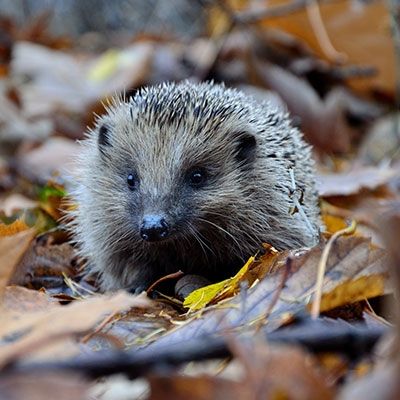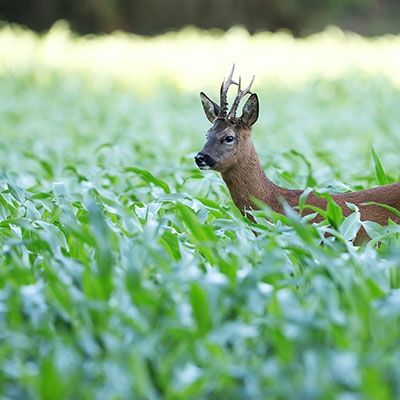Natural Predation

If you find that you regularly have a pest problem then it's a good idea to encourage natural predation into your garden.
- Birds eat slugs, snails, grubs, wireworms, caterpillars and insects.
- Hedgehogs eat slugs and snails, beetles and insects.
- Frogs and toads eat slugs, snails and various insects.
- Ladybirds and lacewings eat aphids such as blackly and whitefly.
Ladybirds are one of our favourite little helpers, they help to keep insects and aphid numbers at bay. Incredibly, a seven spot ladybird can eat up to 5000 aphids during its year long life span. Anyone with roses or edible plants would be mad not to encourage them! Remember though, if you want to keep them in your garden then they will need a sacrificial crop to maintain their numbers (a clump of nettles often work) and somewhere to live.
Frogs, toads, centipedes, hedgehogs, slow worms, ducks and beetles love to eat slugs. You can encourage frogs by having a small pond, and toads by having lots of areas to shelter in e.g. rocks, logs and other dark areas. Centipedes and beetles like moist conditions and can be encouraged by having piles of leaf litter and rotting wood in your garden. You could also consider adding a bug box to your garden. This will encourage many beneficial insects. Make your own or choose from our huge selection in the Garden Centre.
If you're lucky enough to have slow worms then slugs will be no problem. If you don't have them, then it's worth placing a slightly raised piece of corrugated iron or black plastic near the compost heap to try and attract them. Many confuse them for snakes but they are neither snakes or worms; slow worms are lizards and will hibernate October through until March. They tend to like more mature gardens, near woods or heathlands and are a protected species in the UK.




